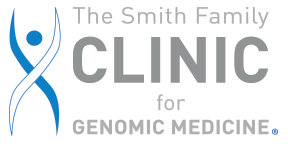New UDN data demonstrates the benefits of whole genome sequencing for patients
Phoenix, AZ — Findings from a comparison of whole exome sequencing (WES) versus whole genome sequencing (WGS) showed that clinical WGS can provide diagnostic answers even where a prior WES did not. Liz Worthey, PhD, a faculty investigator at the HudsonAlpha Institute for Biotechnology and director of the institute’s software development and informatics, presented those findings on Thursday, March 23 at the annual ACMG meeting.
The HudsonAlpha Clinical Services Lab (CSL) serves as the WGS core for the UDN. Baylor College of Medicine provides a second core providing WES. Review of the cases sent to the CSL shows that the majority sent for WGS had a prior clinical WES that clearly had not rendered a diagnosis.
“The structure of the UDN not only allows us to answer important questions about the differences in methods used for annotation, variant prioritization, coverage analysis and interpretation within MDx labs and clinical sites,” said Worthey. “It also allows us to study whether and how often WGS can provide clinically useful information in cases where a diagnosis was not reached via an earlier WES.”
HudsonAlpha analyzed 110 WGS cases, 70 of which had previously received WES.
“We found that about 67 percent of these cases rendered a variant of note after WGS; not all will be proven to be causal variants, but 24.2 percent are considered by the CSL to be a definitive or likely answer for all or part of the patient’s clinical presentation.”
“At the time of prior testing, WES may actually have rendered a variant that was of unclear significance,” said Worthey “but the ability to obtain a diagnosis does not appear to be majorly related to the timing of identification of the disease gene”.
About HudsonAlpha: HudsonAlpha Institute for Biotechnology is a nonprofit institute dedicated to innovating in the field of genomic technology and sciences across a spectrum of biological challenges. Opened in 2008, its mission is four-fold: sparking scientific discoveries that can impact human health and well-being; bringing genomic medicine into clinical care; fostering life sciences entrepreneurship and business growth; and encouraging the creation of a genomics-literate workforce and society. The HudsonAlpha biotechnology campus consists of 152 acres nestled within Cummings Research Park, the nation’s second largest research park. Designed to be a hothouse of biotech economic development, HudsonAlpha’s state-of-the-art facilities co-locate nonprofit scientific researchers with entrepreneurs and educators. The relationships formed on the HudsonAlpha campus encourage collaborations that produce advances in medicine and agriculture. Under the leadership of Dr. Richard M. Myers, a key collaborator on the Human Genome Project, HudsonAlpha has become a national and international leader in genetics and genomics research and biotech education, and includes more than 30 diverse biotech companies on campus. To learn more about HudsonAlpha, visit: http://hudsonalpha.org/.

